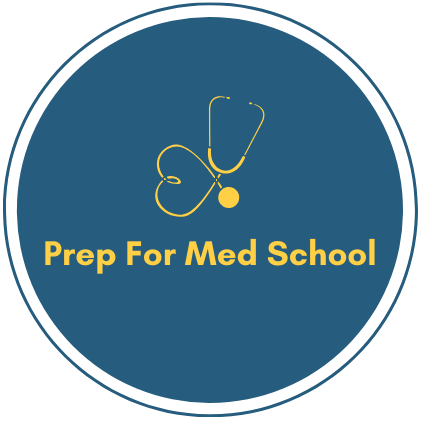You’re ready to take the MCAT but need some help figuring out the best method of studying. This article is about the insight into all of the different courses Kaplan has created for MCAT prep. This is my personal experience with all of them. I took Kaplan’s MCAT prep course, and it helped me improve my score quite a bit. Below is my review of to judge for yourself if it is worth the huge monetary investment.
Cost of the Kaplan MCAT Prep Course
Kaplan offers five different preparation courses. However, because of the COVID-19 pandemic, their one-on-one course is no longer available. Thus Kaplan is currently offering four preparation courses.
Kaplan MCAT Prep Course Options (Currently Modified for COVID)
| Option | Cost | Features |
| Self-Paced | $1,799 | Six months of access to course instruction |
| Self-Paced Plus | $2,299 | Plus 3 hours of one-on-one tutoring |
| Live-Online Lecture | $2,499 | Twelve 3-hour courses and 90+ additional courses |
| Live-Online Lecture Plus | $2,999 | Plus 3 hours of one-on-one tutoring |
| Live-Online Small Class | $2,699 | Same as Live-Online but in a smaller setting |
| Live-Online Small Class Plus | $3,199 | Plus 3 hours of one-on-one tutoring |
| Intensive Live-Online | $6,999 | 250 hours of structure MCAT prep with 12 hours of 1-on-1 tutoring |
| In-Person | Currently unavailable due to COVID |
These courses are:
- The Self-Paced ($1799): This course is the most lenient in terms of course commitment. It uses a preparation layout. You are given six months of access to on-demand courses and 90+ Instructor-driven classes. They are both live-streamed or on-demand.
There is a Self-Paced PLUS option ($2299). This includes the above materials and 3 hours of one-on-one tutoring. It also includes MCAT foundations of biochemistry, MCAT foundation of behavioral science, MCAT biochemistry audio review, and Medical School Admissions help.
This course is for students who cannot attend in-person sessions or online live sessions during certain hours. Utilizing this preparation method will allow you to study at your own pace. It also gives you more freedom to organize your schedule and allow you to bounce around each subject as you deem necessary.
- The Live-Online Lecture ($2499): This preparatory course allows you access to live instructor-driven courses in a lecture-style classroom. This platform was built and centered around e-learning. This is where you attend classes and ask questions during the live classes. You can also get one-on-one feedback from the instructors. This option also gives you access to on-demand previously recorded courses. You will receive twelve 3-hour courses that are led by an MCAT instructor. You will also get as 90+ Instructor-driven classes that are live-streamed or on-demand.
There is a Live-Online Lecture PLUS option ($2999). This includes the above materials and 3 hours of one-on-one tutoring. It also includes MCAT foundations of biochemistry, MCAT foundation of behavioral science, MCAT biochemistry audio review, and Medical School Admissions help.
This course would fit well with someone who needs some laxity in their schedule but still needs some structure. This option involves attending live classes with your assigned MCAT instructor. You will still have the ability to use the online resources to navigate your own schedule. But this course will give you some extra support in terms of having an instructor guide you during your multiple live-sessions.
- The Live-Online Small Class ($2699): This option is similar to the one above in terms of the materials you are receiving and the time commitment. The one difference is that instead of lecture-style classrooms, you are in a small class setting. You will have access to twelve 3-hour courses led by an MCAT instructor and 90+ Instructor-driven classes that are live-streamed or on-demand.
There is a Live-Online Small Class PLUS option ($3199). This includes the above materials and 3 hours of one-on-one tutoring. It also includes MCAT foundations of biochemistry, MCAT foundation of behavioral science, MCAT biochemistry audio review, and Medical School Admissions help.
This course will fit well for someone who needs some structure in their schedule but needs some laxity. The biggest difference is that because of its small class size You are given much more personal time than the larger lecture-style option. This would be a great fit for someone who needs a little bit of extra attention but still able to study outside of scheduled course time. This is most similar to the course I was able to take. However, my course was In-Person.
- The Intensive Live-Online Class ($6999): This option is the total immersion course for those needing serious structure and attention from the instructors. This is a five-week commitment that begins four times a year and requires anywhere from 2 to 7 hours of dedication per day, seven days a week.
This course will give you 250+ hours of structured MCAT preparation, 12 hours of one-on-one instruction, and a rigorous schedule to keep you fully accountable.
This is for the student that is fully dedicating themselves to MCAT preparation. Along with a strict schedule, this course gives the student full access to all study materials.
- The In-Person (unavailable currently due to COVID-19 Pandemic): This is the course I was able to take in the Fall of 2017 through a subsidy from my school. The structure for this course was once-a-week meetings. The meetings covered the main MCAT topics as well as a discussion on how to take the exam. This was done in a small classroom setting and thus offered the participants one-on-one time with the instructor and rigorous class meetings.
There is a chance not all five of the options will be available. I believe everyone will still be able to choose a course option that best fits their needs.
Along with the materials mentioned above, all options/tiers give the student full access to all of the following:
- A full MCAT prep course, live or on-demand
- Guidance from a team of MCAT experts
- Up to 700 hours of instruction and practice
- A Qbank that adapts to your level and builds from there
- 16 full-length, realistic practice tests
- Eight books considered the best in MCAT prep
- All the official AAMC practice available
- Access to online resources for six months after your course start date.
With all of these materials, the student is sure to have more than enough resources at their disposal during the entire course of their studying.
Kaplan’s MCAT Prep Course Review
As I mentioned previously, the course I was able to take is no longer available. The closest course to what I took would be the Live-Online Small Class course.
With any course option you choose, you will take a baseline MCAT exam. In my case, they administered the class online before the beginning of our first in-person course.
The baseline exam is half of a real MCAT. Unlike some of the students in my course, I had taken the actual exam a few months before beginning my Kaplan course. The baseline score was a few points higher than my actual score, so I believe the diagnostic exam is a decent predictor of your actual MCAT score.
Personally, I opted to study ” a la carte” before my first MCAT exam. I purchased what I thought were the best books at the time, and remember studying for 4-8 hours each day.
I mostly studied the provided material and did little in terms of practice questions and practice exams. This was a big mistake. Although the MCAT is notoriously a material dense exam, there is still an aspect of “knowing how to take the exam” that is vital in doing well on the exam.
The Kaplan course excelled in this area. Each instructor at the time I took my preparatory course was someone that had taken the exam and done very well. The instructors knew all the material thoroughly. They were also experts on how to take the exam.
Taking the exam requires a systematic approach when dissecting paragraphs, interpreting important information, deciphering confusing questions, and overall time management. I believe the Kaplan MCAT preparation course did very well in teaching these skills.
My small classroom size was given one instructor that came to a central location at the same time each week to teach us a specific high-yield topic from the material covered in the MCAT.
This topic was from a different material each week, and the instructor would basically dissect a paragraph and the paragraphs questions. After an hour of that, we would talk about any questions we had from previous instructionals or other material we may be confused about from the online resource.
This combination of teaching us high yield topics while also breaking down how to take the exam was very informative and useful when taking the actual exam.
Outside of class, we were instructed to keep up with our own schedules and to continue watching the online Kaplan videos and doing questions. We were also instructed to take practice exams every few weeks—which I failed to do.
Kaplan provided a basic schedule outline that we could stick to. But at the time, I was taking Post-Graduate Master’s level college courses as well, so I was not able to adhere to their recommended schedule fully.
We were told what topic would be covered during each in-person instructional. So what I did personally was cover whatever topic we discussed on our specific day for the entire week. If we discussed Membrane Potential in Biology, the rest of that week until the next in-class instructional, I studied Biology only. Then the following week if we did a CARS topic, then I move on to CARS for the week.
This worked well enough for me at the time. But looking back, I would try much harder to adhere to Kaplan’s schedule.
Personal preference comes in to play here, where you must assess your weaknesses and tailor your schedule to fit your own needs.
We were given a midway diagnostic MCAT exam to assess our abilities after halfway through the course. This half-point MCAT was designed to assess how far they have come from the baseline assessment. This gives the student a better idea into what they need to continue stressing during their studying periods, and if they have improved or not. For me personally, the mid-way diagnostic was 3 points higher than my baseline and 2 points lower than what I ended up getting on the post-Kaplan MCAT.
Is It Worth It and Do You Need It?
I improved 8 points from the first MCAT and 5 points from the baseline diagnostic through Kaplan’s prep course. Both are an improvement of well over ten percentile rank. So I do believe that it was extremely helpful. I definitely feel that my score would have been higher had I done more practice exams and adhered closer to the provided schedule.
What are the advantages of these courses overall? I think having some structure and giving you access to Kaplan’s study materials would be the biggest positives. If you are not a self-starter or do not do well on tests, an MCAT prep course may be necessary.
Personal insight on how the MCAT should be taken was, in my opinion, was the most beneficial aspect of the entire course. I believe knowing how to take the test will alone bump your score up 2-3 points, without any of the other added benefits of MCAT prep.
Are there cons to the courses? As with anything, I’m sure there are. For me, I was overwhelmed with the amount of material Kaplan provides you access to. I felt I was wearing myself a bit thin. The schedule they offered was more intensive than what I could keep up with my busy schedule. But I think that their layout provided many benefits for people who can fully dedicate themselves to MCAT study.
To wrap up, if you can afford a prep course and need structure in your studies, a good prep course like Kaplan may be right for you. However, you are a proactive student that can create a schedule and find resources, then perhaps this may not be the ideal preparatory course for you.
The materials that Kaplan offers with each course are worth a lot. But being able to practice questions and take mock exams will provide the best advantage to each student looking to do well on the MCAT.
I sincerely hope that my article helped you decide whether or not enrolling in a Kaplan course is in your best interest. Do what suits you personally. You know yourself better than anyone else.
Feel free to share this article and leave a message below if you have any questions, comments, or just need to chat. Thanks for reading!







